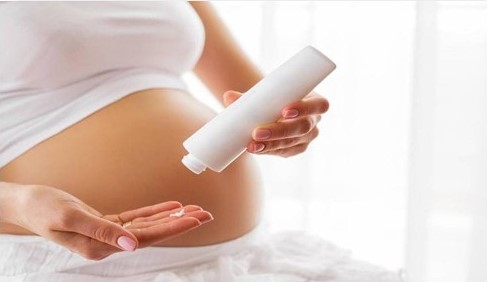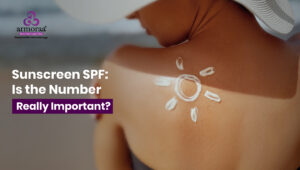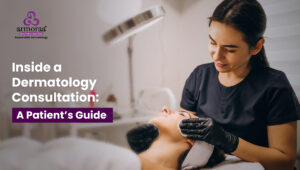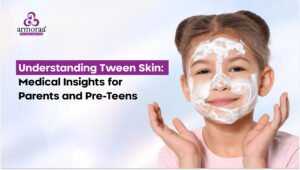Pregnancy brings many skin changes, like hyperpigmentation, acne, and dryness, making it important to choose the right products. While advice is everywhere, getting expert information is crucial. This guide offers a pregnancy-safe skincare checklist, covering ingredients to use and avoid, plus a simple daily routine for healthy skin.

SAFE INGREDIENTS TO USE DURING PREGNANCY:
Finding products with safe and effective ingredients is key to addressing common pregnancy-related skin concerns. Here’s a list of ingredients that are safe and recommended during pregnancy:
NOTE: According to recent guidelines, the following ingredients are considered safe during pregnancy!!
1. Vitamin c: Helps to reduce hyperpigmentation and thus improve skin texture.
2. Alpha arbutin: Effective for treating dark spots and hyperpigmentation
3. Azelaic acid: Ideal for acne prone skin, targets acne, marks and hyperpigmentation
4. AHAs (Glycolic acid, lactic acid): These Alpha hydroxy acids gently exfoliate to reduce dark spots and reduce hyper pigmentation.
5. Ferulic acid: With anti-aging and antioxidant properties, ferulic acid protects the skin from damage and supports collagen production.
6. Niacinamide: A versatile ingredient, niacinamide helps maintain the skin barrier, reduces redness, and prevents pigmentation.
7. Hyaluronic acid: Great for hydration, it keeps the skin plump and moisturized.
8. Peptides: These help to moisturize and support the skin’s elasticity, which is crucial during pregnancy.
9. Ceramides – Helps for hydration and moisturizing effects.

INGREDIENTS TO AVOID DURING PREGNANCY:
Some ingredients pose risks during pregnancy and should be avoided. These include:
1.Retinol and retinoids: These vitamin A derivatives are commonly used for anti-aging but can potentially harm fetal development.
2. BHA’s like salicylic acid: High concentrations can be harmful, so it’s best to avoid products containing BHAs during pregnancy.

A SIMPLE PREGNANCY-SAFE SKINCARE ROUTINE:
Step 1:
Cleanser: Start with a gentle, hydrating cleanser that’s PH balanced and free from fragrances. This helps maintain the skin’s natural barrier. Choose according to your skin type.
Dry/Normal Skin: Use a gentle, hypoallergenic and fragrance-free cleanser.
Oily/Combination and acne prone Skin: Opt for a cleanser with niacinamide or a mild AHA also oil control cleanser with Zinc PCA, lactic acid or Lactobionic acid.
Pigmented Skin: A cleanser with vitamin C or niacinamide can help brighten the skin.
Pro Tip: Wash your face 2-3 times daily to keep your skin clean and refreshed.
Step 2:
Moisturizer: Hydration is very important from external also, as your skin barrier gets easily disrupted during pregnancy and the healing capacity of skin is low. To keep your barrier integrity well, you need a moisturizer. Choose according to your skin type.
Dry/Dull Skin: Use a moisturizer with hyaluronic acid, ceramides, and peptides.
Pigmented Skin: Opt for a moisturizer with niacinamide and vitamin C can add to it.
Oily/Combination and acne-prone Skin: Opt for a gel-based, hypoallergenic, and fragrance-free moisturizer with Zinc PCA.
Step 3:
Sunscreen: Sun protection is the important step in skincare routine. It’s always better to stick with a physical blocker throughout your pregnancy and lactation period. Choose according to your skin type
Dry to Normal skin: Use a lotion based sunscreen
Oily/Combination: Opt for a gel-based sunscreen either with silicone or water gel based.
OPTIONAL ACTIVES FOR SPECIFIC CONCERNS:
While using actives like vitamin c, niacinamide, ferrulic, azelic.. etc. are not mandatory, you can use it if you feel like applying an extra step according to your needs, if you have any skin problems like acne, pigmentation, itching, dryness that’s more than usual its always better to consult a dermatologist and then use the needed active accordingly for a pregnancy safe skincare.




